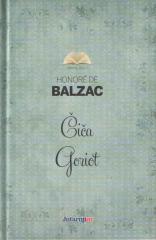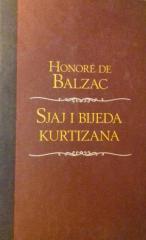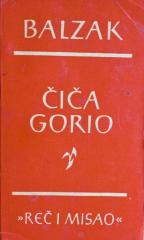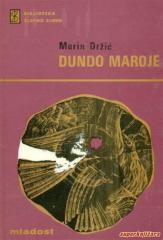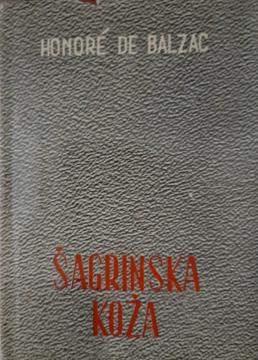
Šagrinska koža
The Shagreen Leather is a novel by French novelist and playwright Honoré de Balzac from 1831. Set in early 19th-century Paris, it tells the story of a young man who finds a magical piece of shagreen that grants his every wish.
The romantic component of Balzac's personality found its full expression in a whole series of works, which Balzac himself classified as "philosophical stories": in all of them the fantastic and mysticism are strongly emphasized, for which most critics found a model in Hoffmann. In 1830, Balzac's L'Élixir de longue vie was published, which in both concept and title resembles Hoffmann's "Elixir of Life". A year later, he published "The Shagreen Skin", which resembles Hoffmann's "Phantasienstücke", only with the difference that Balzac is guided by philosophical and moral tendencies, which are absent in Hoffmann. "The Shagreen Skin" excellently demonstrates how Balzac skillfully combines the fantastic with realistic accuracy in description.
In "The Shagreen Leather" Balzac brilliantly depicted and described passion in all its details and expressed the moral thesis that excessive indulgence in passions inevitably destroys a person. Raphael de Valentin gambled away all his wealth, which was enough for him to finish his education without any problems. Thus, he found himself in hopeless misery, from which he wanted to escape by committing suicide. Fortunately, from an old-timer on the banks of the Seine - where he wanted to kill himself - he came across a miraculous shagreen leather, which has the property of fulfilling its owner's every wish. Its only drawback is that it shrinks, and when it shrinks completely, when it disappears, then the life of its owner has come to an end. Raphael, freed from misery, throws himself into the arms of passions again. But not for long: every glance at the shagreen leather, which is visibly shrinking, warns him that his end is approaching. This thought finally drives him into despair, and despair into an illness - from which not even the best doctors can save him. Thus, his regret for fulfilling his own passions ultimately brings him death.
No copies available
The last copy was sold recently.
